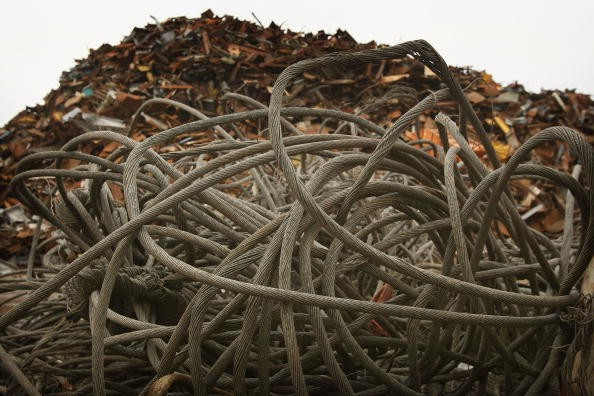Car makers and energy firms are replacing copper with aluminum in their products after seeing how much they would save with the innovation.
A Reuters report revealed that several automotive giants like Japan's Toyota as well as power firms are substituting copper components with aluminum in a bid to lessen production costs.
Apparently, some companies are trying out new ways of incorporating the use of aluminum in their craft which basically removes the malleable metal's limitations such as its lower conductivity.
In fact, the Saudi Electricity Co. revealed that they have already saved 2.4 billion riyals (about $640.09 million) from using aluminum as a counterpart for copper materials.
"We started more than a year ago and we plan to continue," said SEC Chief Executive Ziyad Alshiha.
But there are still sectors such as electric circuitry, infrastructure construction and shipbuilding that would remain loyal to the heavier metal due to their need of the material's high level conductivity, flexibility and durability.
The swap between the two metals started in 2011 when copper prices skyrocketed to $10,000 per tonne compared to aluminum's $2,525 price tag during the same period, leaving manufacturers venture into the cheaper substitute.
"Ten years of high (copper) prices incentivized many players involved throughout the supply chain to invest in the R&D and make more substitution possible. Now we're starting to see some results on this front," explained Patrick Jones, an analyst at Nomura in London.
In a comparison between the two metals, Arcor Electronics revealed the advantages of aluminum wires over those made with copper.
"Aluminum wire is generally easier to work with than copper, because it is lightweight and easy to manipulate. This makes it popular when making connections across long distances," the website explained.
Furthermore, aluminum is said to be "significantly less expensive" compared to copper, making it the perfect substitute for long-distance applications.
"When you work with copper wiring, you can need up to twice as much actual wiring than you would using aluminum, and that adds up," it added.
Aluminum is the second most abundant mineral on the Earth's surface, while copper comprises about 0.0068 percent of the planet's crust.



























